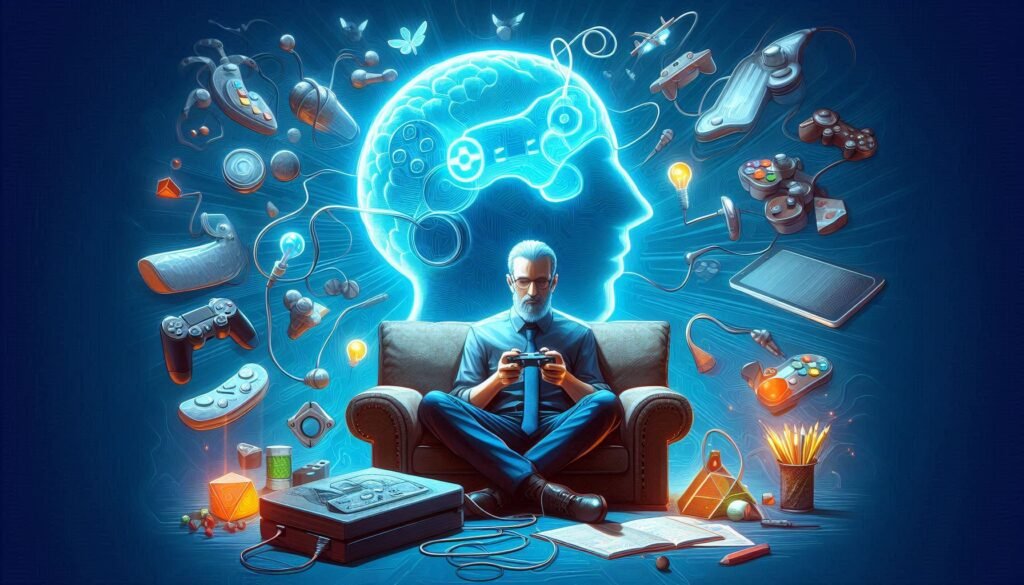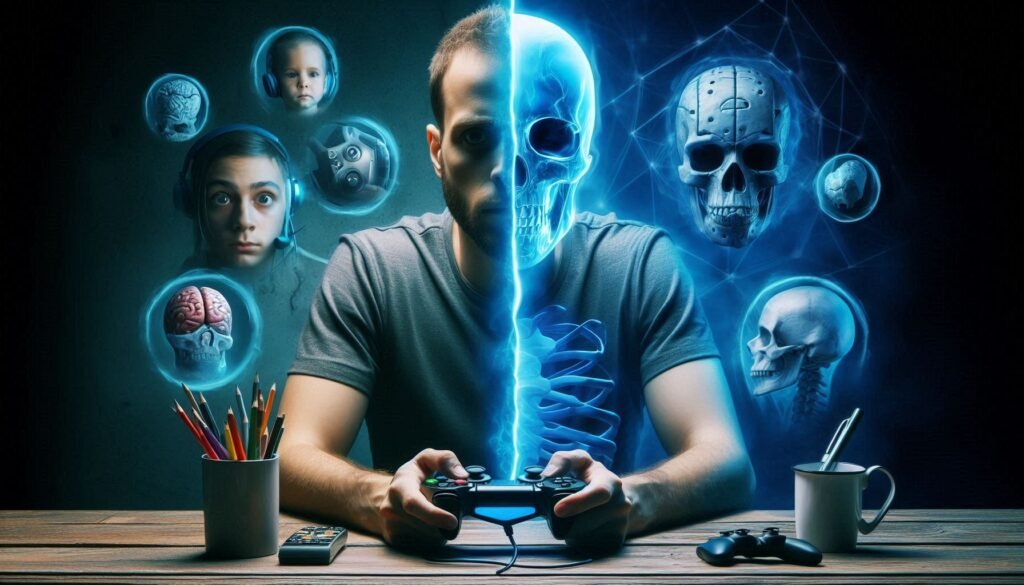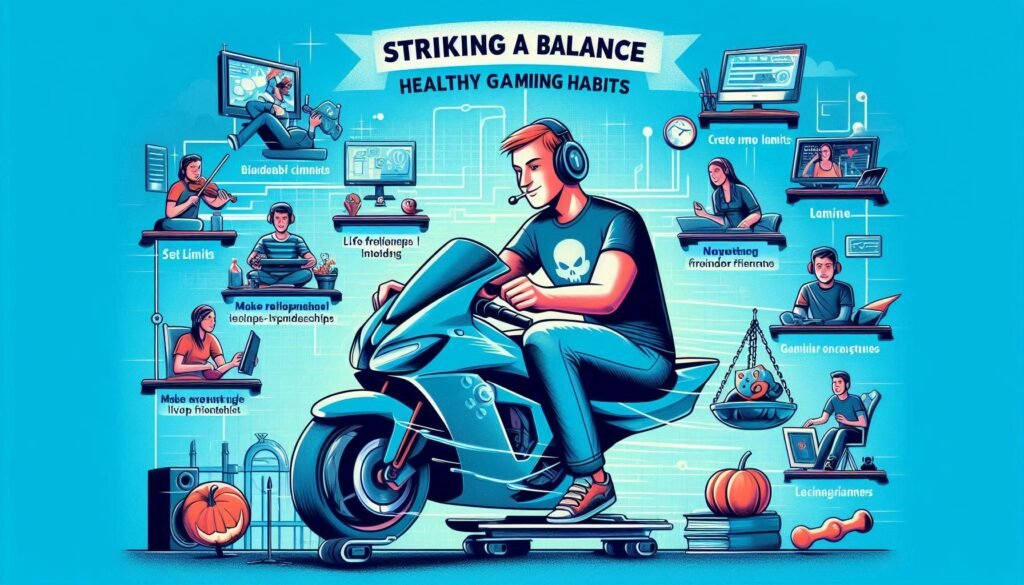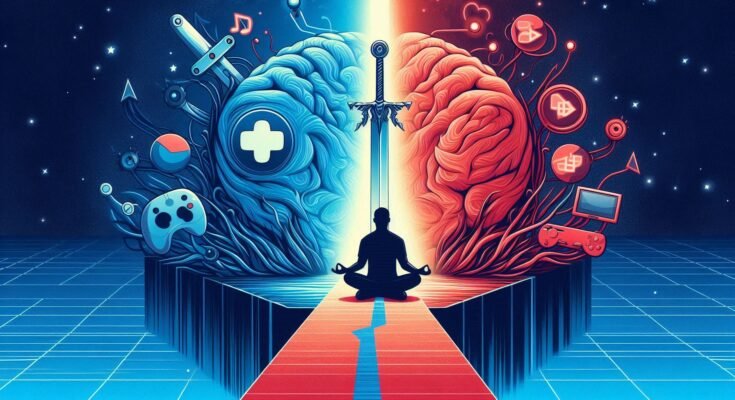In recent years, there have been growing discussions about mental health, making people aware of emotional, psychological, and social well-being. In the meantime, video games have blossomed into a global phenomenon, with billions of players across the globe. Gaming, generally speaking, is viewed as entertainment and social engagement. However, there are so many contrasts between gaming and mental health. Gaming can be very comforting to some people, while gaming can risk emotional and mental well-being if they are unaware or do not deal with their emotions properly.
The Positive Effects of Gaming on Mental Health
Gaming, for many, is an efficient means for them to unwind and relieve their stress. The virtual worlds and stories immerse an individuals in themselves and create a virtual escape from life, an incredible distraction for anxiety, depression, or loneliness. Games like Animal Crossing: New Horizon and Stardew Valley, for example, have gained a reputation for their soothing and even encouraging therapy, where players are allowed to unwind and focus on their creativity with little at stake.
On the other hand, it forms community and belongingness. It enables a feeling of connectivity and the creation of relationships, alliance strategies, and team bonding for its players, alongside other socially interactive games such as Fortnite, League of Legends, or Among Us. Gaming communities in the online arena form a great area where people who have a hard time connecting with people personally, either because of anxiety or for other reasons, can fulfill their needs of connection and confidence building.
The other positive aspects of gaming relate to cognition. Many games require one to solve problems, think strategically, and make split-second decisions, which boosts mental agility as well as concentration. Some games designed for mental wellness, like Hellblade: Senua’s Sacrifice, which often dives into the topic of psychosis, can create awareness and cultivate empathy toward the struggles of mental health.

The Negative Effects of Gaming on Mental Health
While gaming does have its good sides and advantages, it is sometimes foiled by mental health-related effects: their most prominent complaint is that gamers can be excessive or compulsive in their particular fixations. Such people become socially disconnected from others in the sense that they prefer interacting with their PCs or consoles over socializing with real friends or relatives. Such withdrawal certainly aggravates a person into feeling lonely, lacking any contact with the world around him/her, more so if that person constantly resorts to gaming as a means of escape from dealing with emotional problems lying beneath the surface.
The other concern is the potential for gaming addiction, considered a mental disorder by the World Health Organization (WHO) in 2018 and defined as any condition in which there is impaired control over gaming, the greater priority given to gaming over other daily activities, and the continuation of gaming despite negative consequences, which could at times render the mental health of the gamer extremely precarious by way of resulting in sleep disorders, underperformance academically or at work, and increasing levels of stress and anxiety.
Competitive or esports are exciting factor that also invokes mental health issues. Playing all the popular competitive games such as Call of Duty or Valoran drives frustration, rage, and maybe burnout under the extreme pressure of trying to do well. Toxic gaming communities do harassment or bullying and form the basis for low self-esteem or panic attacks, among other mental health issues.

Striking a Balance: Healthy Gaming Habits
The secret to getting the most out of gaming, while taking the least risk with its ill effects, lies in moderation and mindfulness. Here, then, are some rules to maintain a healthy gaming relationship:
Set Limits: Create firm limits in the time you game so that it doesn’t interfere with work, studies, or relationships.
Make Real-Life Friendships a priority: As important as online friends might be, engaging in live conversation and attending offline events should be prioritized.
Be Mindful of Content: Choose games that suit you mentally. If competitive games stress you out,
choose ones based on relaxation or co-op play. Take Breaks: Remember to take time out at different intervals when gaming to give your eyes a break, stretch, or just sit back and contemplate your feelings.
Seek Support if Necessary: If you feel that gaming is spiraling out of control or adversely affecting your mental health, don’t hesitate to reach out to a mental health professional for aid.

Conclusion
Each type of game has a different impact that can either be negative or positive on the person’s mental health, depending on how it is done. If done mindfully and moderately, gaming can become a potent tool for relaxation, connection, and personal development; if, however, it starts to become excessive and replace very real interactions, it may very well contribute to mental ill health. We hope that raising awareness and promoting a healthy approach to gaming will keep gaming a positive aspect in our lives, contributing to our mental wellness rather than subtracting from it.




